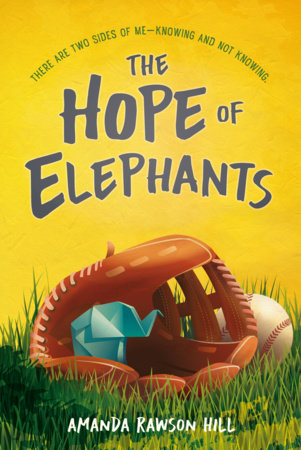
A girl struggles to decide whether to be tested for the genetic mutation linked to her father's cancer. Would it be better not to know that she's at an increased risk of developing cancer too? Born from some of the real-life experiences of author Amanda Rawson Hill's sister Darci, Darci's husband Chris, who died of a Li-Fraumeni syndrome cancer, and Chris and Darci's now 8-year-old daughter, The Hope of Elephants is a gentle coming-of-age tale, told in verse, about the uncertainty of life with Li-Fraumeni syndrome.
The Hope of Elephants, Amanda Rawson Hill's fourth book, publishes on September 6, 2022. Amanda is generously donating $1 of each pre-order of The Hope of Elephants to Living LFS. Order yours.
Here, author Amanda and her sister Darci reflect on Li-Fraumeni syndrome and The Hope of Elephants with each other and with Living LFS.
CHRIS AND DARCI'S LIFE WITH LFS
Living LFS: How did the cancer and LFS saga start for your husband Chris?
Darci: Chris’s mom died in her early 50’s of cancer after having it multiple times. His aunts and uncles all had cancer and his grandma died of cancer. When we got married, his family was discovering there was a genetic mutation responsible for the cancer in his family and the condition was called Li-Fraumeni. Two years into our marriage we decided to get Chris tested for Li-Fraumeni. We were disheartened and disappointed when found out he had LFS, but it seemed like cancer would never come, so we weren’t too upset by the diagnosis. Chris signed up for a study on LFS through NIH and they offered to do his full body MRI scan for free and fly him out for it. On his first scan, they noticed something abnormal with his ribs. They thought he had a small fracture in his rib but after further investigation they diagnosed him with osteosarcoma. Chris had just finished graduate school and had accepted his first job as a pediatric occupational therapist. His first day on the job he had to tell his boss that he had cancer. His health insurance didn’t kick in for a month, so NIH offered to do his surgery to remove the tumor for free. After he recovered from surgery he started chemo. Our life was never the same once he started chemo.
Living LFS: What kind of support have you received through your LFS journey?
Darci: I have had tons of support from my family and Chris’s family during Chris’s cancer journey and our daughter’s screenings. I am able to talk with Chris’s family about my concerns and vent about my worries and false positives found on my daughter’s MRI scans. My mom and siblings helped watch my daughter for countless hours while Chris was getting inpatient chemo for almost two years. Chris’s dad traveled from California to be there for Chris during surgeries and chemo and radiation treatments and shaved his head the entire two years Chris battled cancer. My parents allowed us to move into their house and even built a wheelchair ramp and put in a handicapped shower when Chris went paralyzed at the end of his battle with cancer. My family has always been there to support me, especially with my grieving. The doctors at the Huntsman Cancer institute did a great job taking care of us and answering any of our questions about LFS.
Living LFS: What gives you hope?
Although Chris’s family had LFS, most of the family members with the mutation have been able to still live wonderful lives and raise their families and have grandkids. It gives me hope that although my daughter has a not very favorable genetic condition, she can still live and experience a fairly normal life. Cancer doesn’t always end in death the way my husband’s did. The research that is being done on LFS also gives me hope that one day, there can be a cure for LFS or a gene therapy developed to help with the condition. Increased awareness of LFS gives me hope that more research will be done on the condition as well. Also, programs that help pay for PGD with those that have LFS and insurance not being able to deny coverage for pre-existing conditions gives me hope that my daughter and others with LFS will always be able to get the care they need and have options to not spread Li-Fraumeni syndrome to their children.
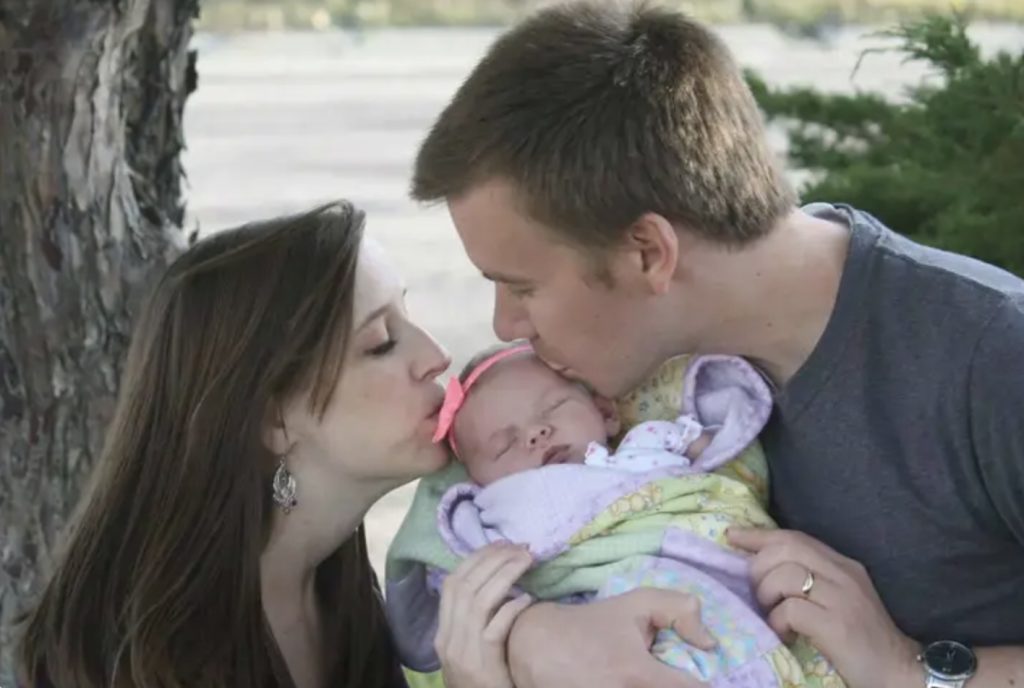
THE AUTHOR AND HER SISTER ON THE HOPE OF ELEPHANTS
Amanda Rawson Hill: The Hope of Elephants is about many things, but making the decision to get tested for Li-Fraumeni syndrome is a big part of the narrative. I know your husband didn't get tested for the TP53 gene mutation until he was an adult and you two were married, but you tested your daughter for it when she was about a year old. Was it hard to make either of those decisions? What factors went into each? What was the hardest part of each decision? Do you regret it?
Darci: There were definitely mixed feelings with getting our daughter tested for LFS. The decision to get her tested wasn’t very difficult to me. I felt that it was negligent to not get her tested, because if she had the gene mutation, burying my head in the sand wouldn’t be helpful, and I knew in my heart I could never forgive myself if she was diagnosed with a late stage of cancer because I wasn’t proactive. I felt it was mostly a win win situation to get her tested because either:
- She wouldn’t have LFS and I’d never have to give it a second thought ever again or
- Not have to wonder all the time if she had LFS and use knowledge as power and be proactive with catching cancer early.
Chris really struggled with the idea of getting our daughter tested because he said he would feel extremely guilty to know he had passed on his cancer predisposition. We also knew if we got her tested and she was positive, she would probably never be able to get a life insurance policy or cancer insurance policy and we took her right away from her to make the choice for herself. We weighed the pros and cons and in the end, felt it was best to get her tested young. Although I don’t have any regrets about getting her tested, it is difficult knowing that cancer is a huge part of her and my life and knowing that my sweet little girl may have to face it one day. It’s scary and exhausting always wondering if any ache, bruise, or pain that she has could be cancer.
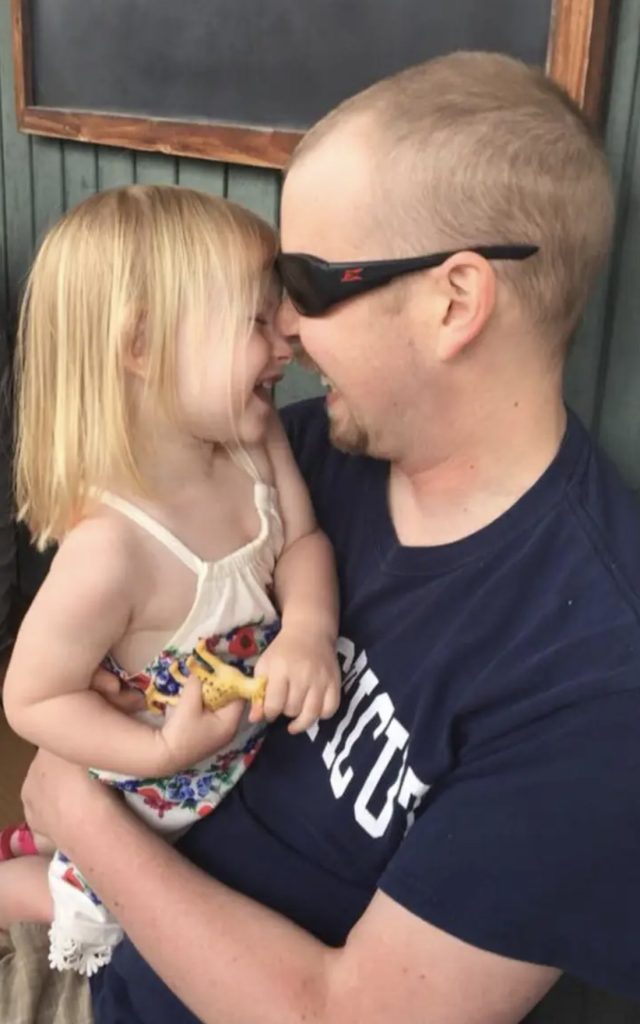
ARH: Chris died five years ago, and you've known that your daughter has LFS for seven years now. What do you know and understand now that you wish you'd known then?
Darci: I knew that if she had a positive test it would forever change our future. We knew at the time of testing what we were getting into, so I don’t feel there is anything new I understand now that I didn’t know then. Instead, I more now wonder how I explain to my child about her medical condition without having her in constant fear that she could die of cancer at a young age. I’m not sure how to navigate that situation very well, as I don’t feel a child can truly handle that information in a healthy way.
ARH: I was writing The Hope of Elephants and submitting it while you were going through four years of hell, from caring for Chris through terrible chemo, to losing him, a year of grieving, and then rebuilding a new life that is still haunted by the possibility of cancer. Were there ever any hard feelings that I was using so much of your life experience for a book?
Darci: I wouldn’t call them hard feelings, but there have definitely been feelings of sadness and hurt. I hate that LFS is a huge part of my life and already stole my husband and could possibly steal my daughter. It’s really hard to think about losing both of them, leaving me alone. I am honored that our story was used as inspiration for your book, but it’s also hard knowing that to most, it’s just a story and they can read it and never have to give it a second thought, where as it’s not a story to me, it’s my reality that I live everyday. Although I don’t want pity, I want there to be reverence towards the subject matter because it weighs heavy on my heart and all those who have LFS and loved ones with LFS.
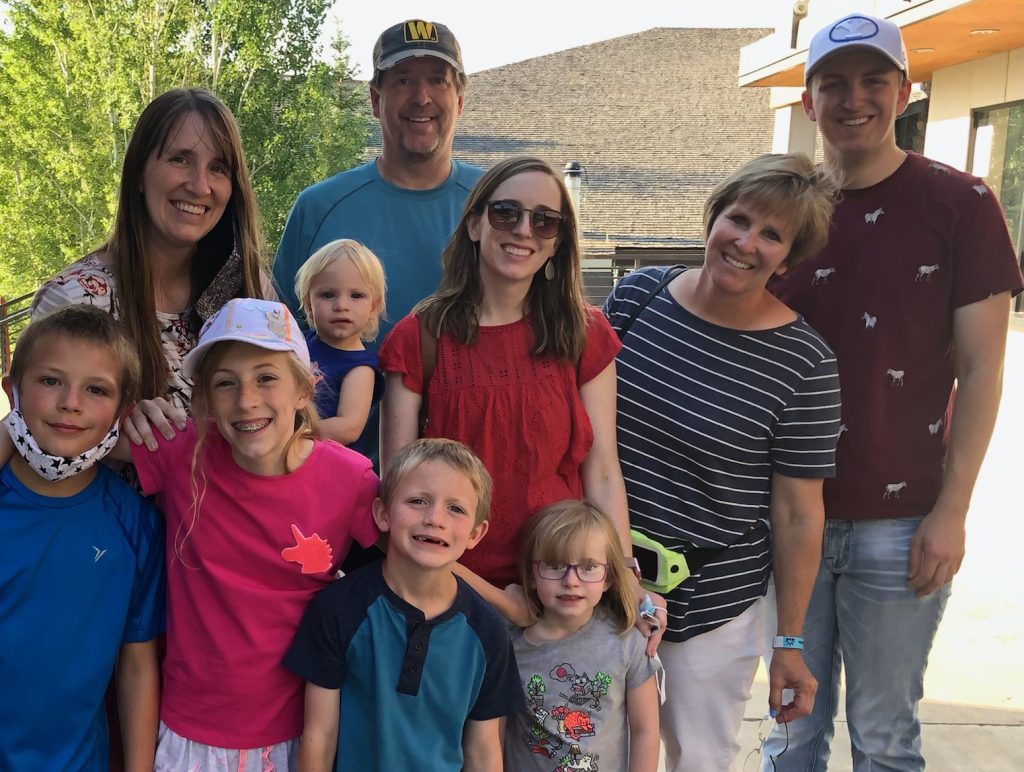
ARH: Does it feel odd now that it's going into the wider world to be read by people you don't know?
Darci: It doesn’t feel odd. I’m glad there will be more awareness to the subject, as not many people have heard of Li-Fraumeni syndrome and I would love there to be more research and awareness for it.
ARH: When you read The Hope of Elephants, what stuck out to you as particularly true or perhaps egregiously wrong?
Darci: The circle of hope stuck out to me as very true. Cancer is such a rollercoaster. Sometimes you feel like you are experiencing miracles and other times you feel like you’ve been kicked to the curb and there’s no hope. It really is a circle and never ends.
The only thing that stood out to me as being incorrect is that in the story, the main character’s dad has cancer multiple times in a matter of years. Although this could be true for some individuals with LFS, in my husband’s family’s experience, cancer bouts are spaced out far more than every two years. I don’t think a body could sustain a new cancer diagnosis every 2-3 years.
I want people to know what LFS actually is so that there is increased awareness among the general population, doctors and researchers. Increased awareness can help increase testing, provide more and better research which will hopefully help develop better guidelines on how to test, treat, and manage LFS and develop mental health resources with the anxiety and complexities that arise from such a difficult diagnosis.
I want people to know that LFS affects our family on a daily basis. Not a day goes by that I don’t think about it or the effects it has had on my family. I also want people to know that you can still have a beautiful life with LFS. It definitely has given me the ability of living in the moment and truly treating every day as a gift. I cherish every day that I have with my daughter that is cancer free. It can be hard at times to hear parents complain about their children or very small things in life, because most of them have no idea what it feels like to not know how much time you have with someone with LFS and how life can change in the blink of an eye. I want people to be grateful for their healthy bodies and treat them well and not take a day with their loved ones for granted.
AUTHOR AMANDA RAWSON HILL ON WRITING THE HOPE OF ELEPHANTS
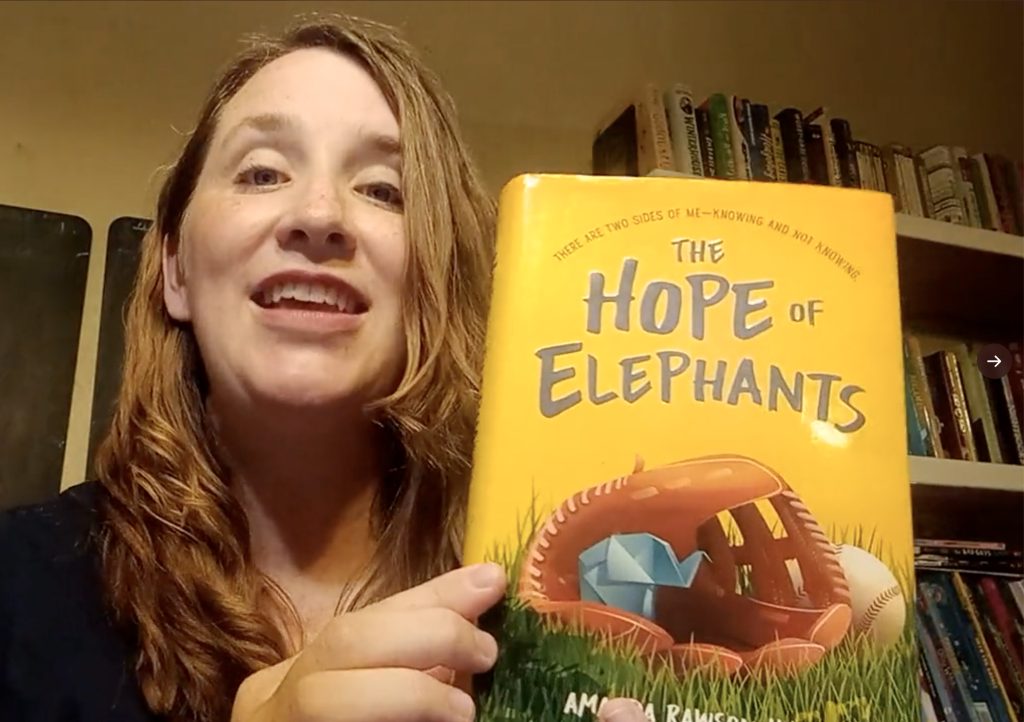
Living LFS: You were a widely published author prior to The Hope of Elephants. Tell us a bit about your previous books, and how this writing experience has been different. What made you decide to write this book, and what are your hopes for it?
ARH: I published three books before The Hope of Elephants. My debut, The Three Rules of Everyday Magic, is a novel about parental depression, grandparent dementia, and learning how to love others.
My next two books were picture books. My Pet Cloud is a silly book about a boy who adopts a cloud as a pet. You'll Find Me is probably my most successful book to date. I wrote it about 9 months after Chris died. Darci's daughter was three years old and she came to visit. Soon after she arrived, she found a picture of Chris on our bookshelf, picked it up, and started carrying it around with her. When she left, I was stripping the sheets off her bed and found his picture tangled in the blankets. The words to that book came faster than anything I've ever written. Like it was a note from Chris to her. It was one of the more amazing writing experiences of my career. And since it was published, it has helped thousands of families through their own grief and tragedies.
I started writing The Hope of Elephants back in 2015 when I went to help my sister through Chris's second round of chemo. We'd just recently got the news that her daughter had the mutation. I just couldn't get this picture out of my head of a girl being split into two sides, two possible futures, and then coming back together when she tested for the mutation. Writing the book was incredibly personal. Unlike my other books, I would write poems straight from pictures Darci would send, or snippets of things she would say. There are poems in there that I wrote as I was processing my own grief as Chris was in his last few months.
But the book wasn't ready for publication. We tried a few editors and they all said no. It was particularly heartbreaking because the novel was so personal. It felt like a rejection of me. Of our story. A little over a year after Chris died, I told my agent I wanted to try selling it again. She reread it and gave me notes that she'd tried to give me as I was writing it the first time. "It's too sad. Cancer controls too much of the narrative. It needs some lightness." I had tried over and over to give her that a few years earlier. But being in the throes of saying goodbye to Chris and watching my sister grieve, I wasn't ready to write that part of the story. I wasn't ready to embrace lightness and hope. All of it felt so heavy in the moment. But finally, I was ready. I was able to see the cracks of light coming through. I was able to let go of some of the sadness and bring happiness into the text as well. And that was when it finally started actually becoming a book about hope. That was when it finally sold to my editor, Karen Boss, at Charlesbridge.
I wrote The Hope of Elephants because I couldn't not write it. I needed to write it. And I needed other people to read it and know about this hard thing in my family's life. That is my biggest hope for it, that it will bring more awareness to LFS and that awareness will help spur more empathy and research. I hope that it accurately reflects the hopes and fears of anyone with a genetic illness and that it will help all readers learn to embrace the truth about life. That it's beautiful and fleeting.
Previously: How Elephants Became a Symbol of Hope for Our Living LFS Community
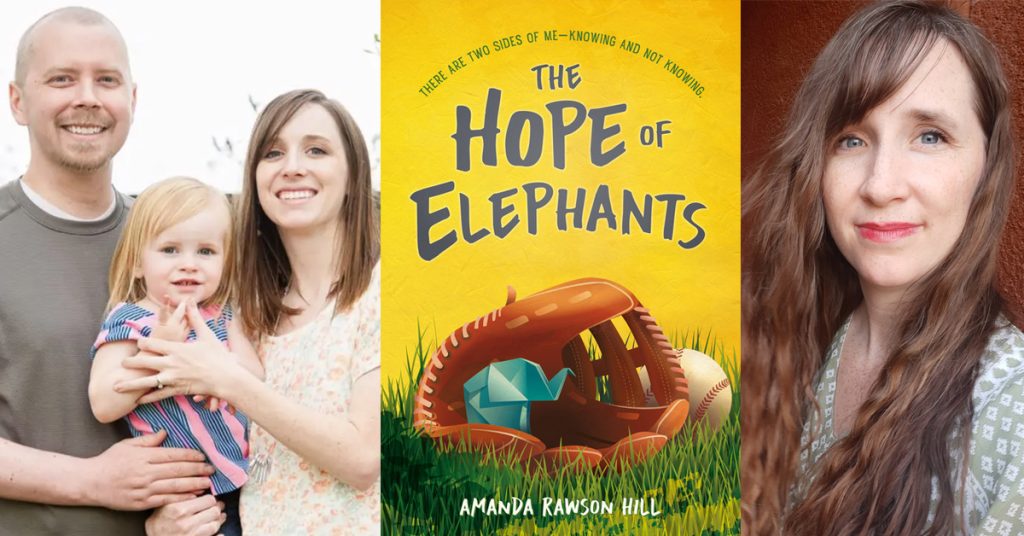
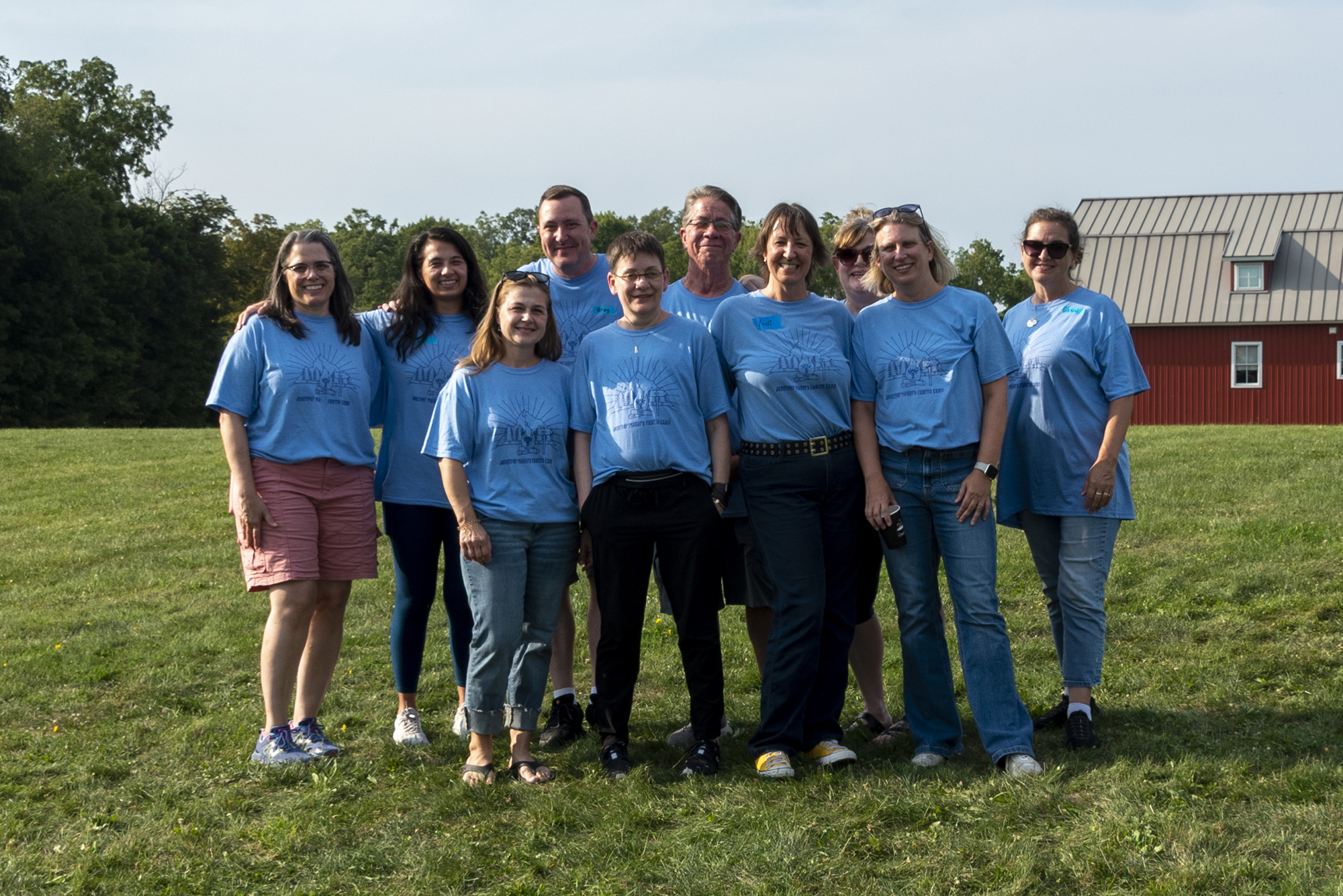
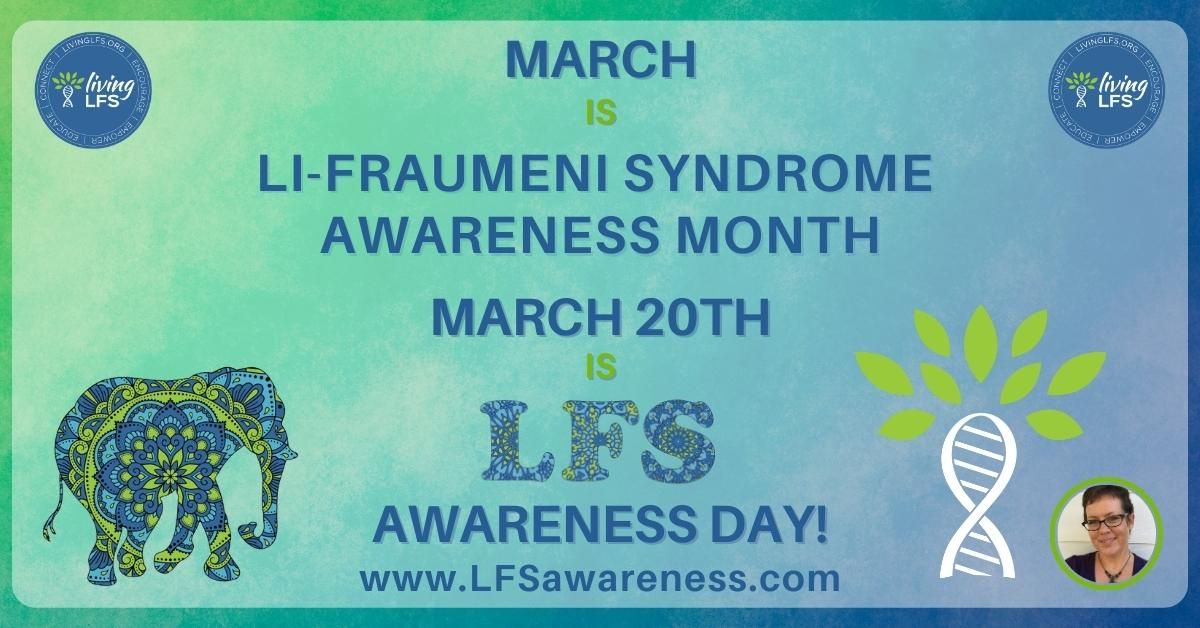
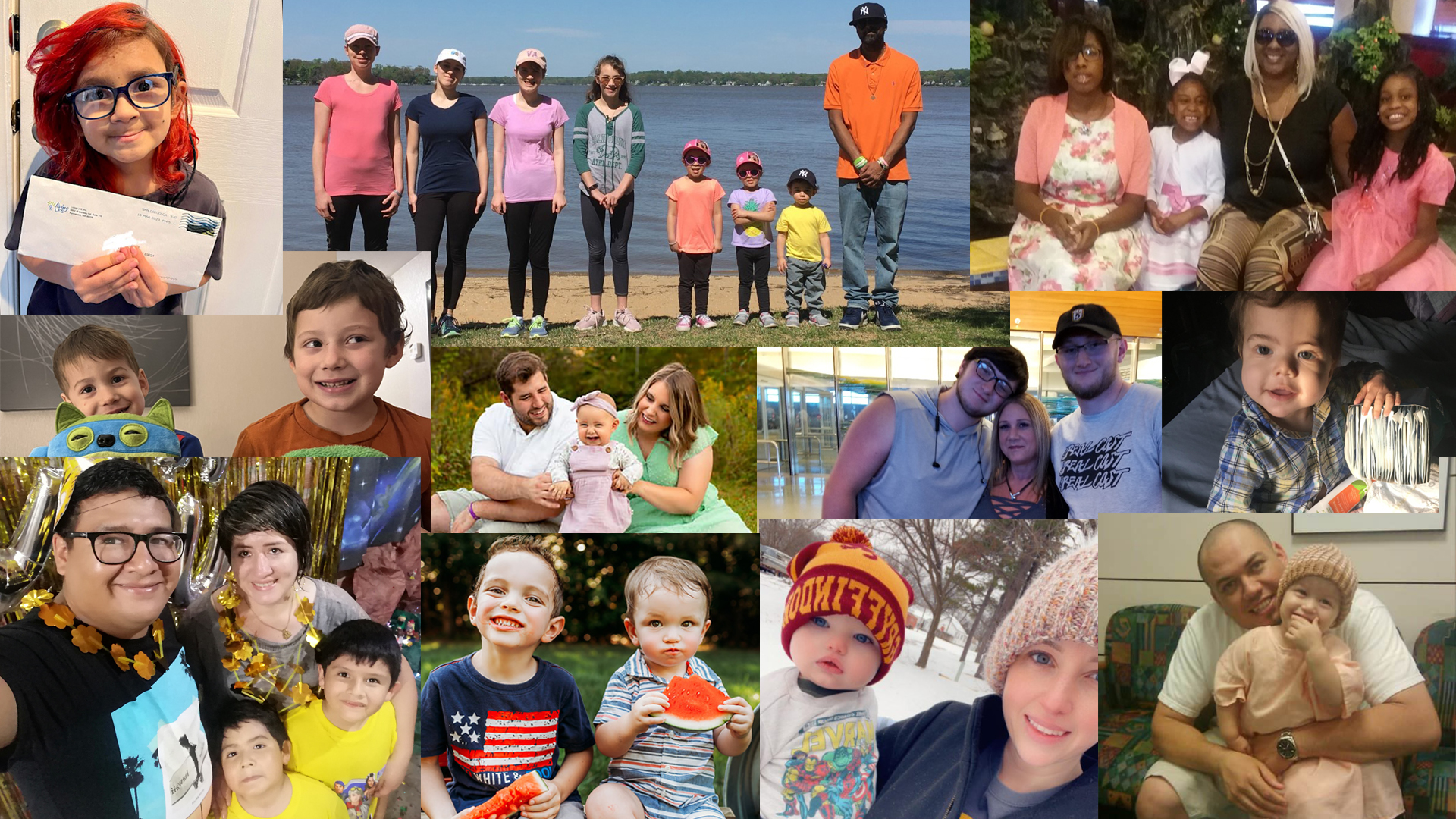
4 Responses
This is so tenderly written Amanda. I remember meeting you and your mom at the library and and being pulled into a few minutes of catch-up on the tragedy that overtook all of your lives. Sweet Darci who should have had life filled with joy. Well, that did come eventually as we all know but such a bumpy ride getting there. You poems are beautiful. Blessings.
Absolutely beautiful !! My girls!
I am anxious to read this book. My daughter died with LFS syndrome IN 2019 at the age of 31. She had breast cancer like her mother who died in 2004 at age 50. So it is possible to live a fairly normal life depending upon how aggressive the disease might be. Wishing that everybody will live each day with hope. 🤗
Amen.